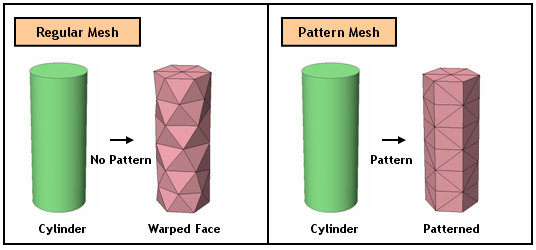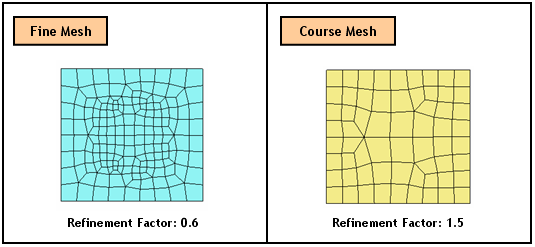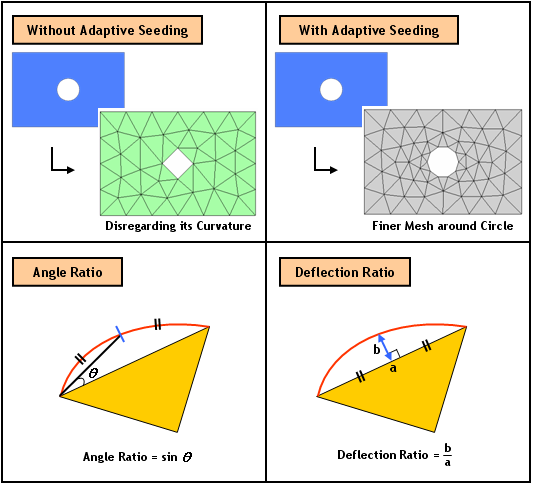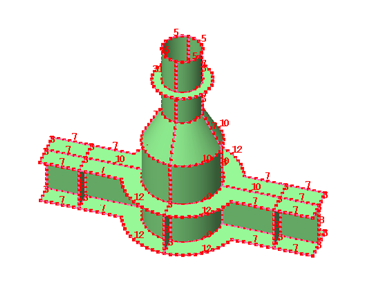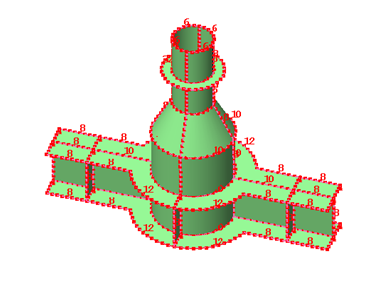Mesh Preference

Function
Default Auto Mesh Generation settings can be specified. Note, any changes made to the mesh preference will be assumed as the new default Auto Mesh Generation setting.
Call
Mesh > Mesh Preference

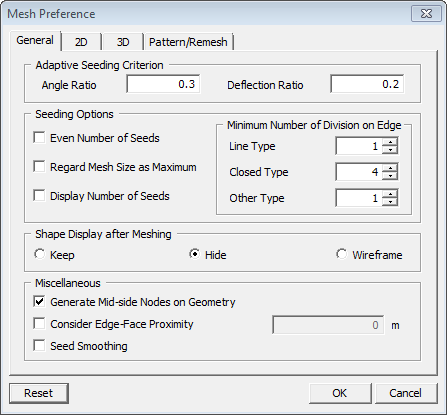
<Mesh Preference - General>
General
Adaptive Seeding Criterion
Specify the Adaptive Seeding conditions. The default value is set at 0.8 for both Angle Ratio and Deflection Ratio. If any one of these conditions is satisfied, the adaptive seeding will be applied. See example.
Angle Ratio
Angle
Ratio represents the sine value of an angle between the boundary element
edge and the straight line connecting to the midpoint of the geometric
edge as shown in the figure below. If the angle ratio approaches 1, the
element gets farther away from its geometric shape. The program will divide
the boundary element once more if the angle ratio is greater than the
criterion.
Deflection Ratio
Deflection Ratio represents the ratio between the length of boundary element edge and the orthogonal distance from the midpoint of the element edge to the geometric edge. If the angle ratio approaches 1, the element gets farther away from its geometric shape. The program will divide the boundary element once more if the deflection ratio is greater than the criterion.
Seeding Options
Even Number of Seeds
Creates an extra node if elements contain odd number of nodes. Helps users to create quadrilaterial elements.
Regard Mesh Size as Maximum
Forces the number of nodes on an element to create an even number of nodes.
Display Number of Seeds
Displays total number of seeds per edge.
Shape Display after Meshing
Generate Mid-side Nodes on Geometry
Consider Edge-Face Proximity
Seed Smoothing
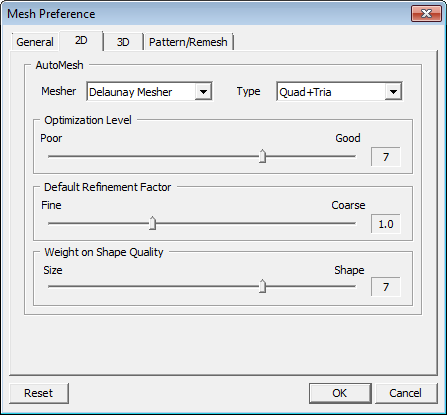
<Mesh Preference - 2D>
Default Mesher and Mesh Type
Determine the default 2D Auto-Mesh generation algorithm and its type.
Mesher
Select the default Mesher
among Loop, Grid, and Delaunay.
Type
Select the default element type between Triangular and Quadrilateral elements.
Optimization Level
Specify
the level of optimization during Auto-Mesh generation. As the level approaches
'Good,' the generated mesh quality become better. However, the time required
for mesh generation will be longer. It can be set separately for 2D and
3D.
Default Refinement Factor
Determine the default size of elements within the selected shapes. The Fine option creates a dense mesh while the Coarse option creates a sparse mesh. It can be set separately for 2D and 3D. See example.
Weight and Shape Quality
Specify
the preference level between element size and quality. It can be set separately
for 2D and 3D.
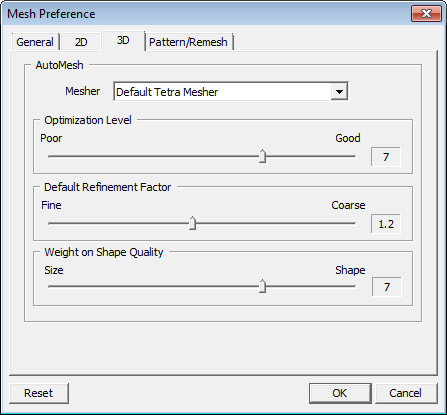
<Mesh Preference - 3D>
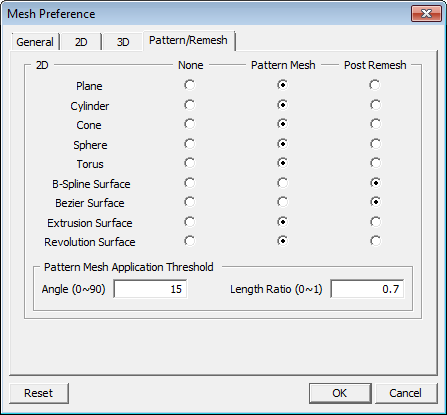
<Mesh Preference - Pattern/Remesh>
Pattern Mesh/Remesh
Pattern Mesh controls mesh shapes for general surface types such as cylindrical and planar surfaces during 2D and 3D Auto-Mesh generation. Pattern Mesh will be generated only within the listed geometric type from Plane to Revolution Surface. See example.
Application Threshold
Pattern Mesh is designed to achieve the best quality mesh when an object Surface becomes rectangular when it is spread out on a plane. In this case, the user specifies allowance conditions for Pattern Mesh consideration.
Angle
Enter the angle from 0 to 90 degrees. If an object surface has all corner angles within this allowance angle, the program generates a patterned mesh in the surface. Therefore, a higher angle allows more shapes to become qualified for a Pattern Mesh.
Length Ratio
Enter
the length ratio of facing Edges when a surface is spread out on a plane.
A length ratio of a surface can be obtained by dividing the shorter Edge
by the longer Edge. If the length ratio of the surface is less than the
allowed ratio, the program generates patterned
mesh on the surface. Therefore, less length ratio allows more shapes to
become qualified for a Pattern Mesh.
